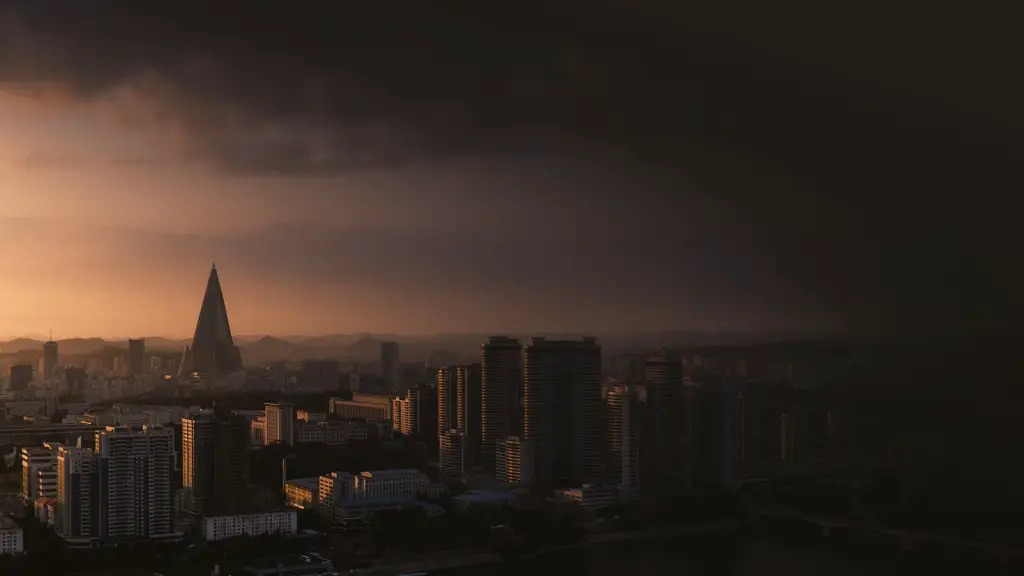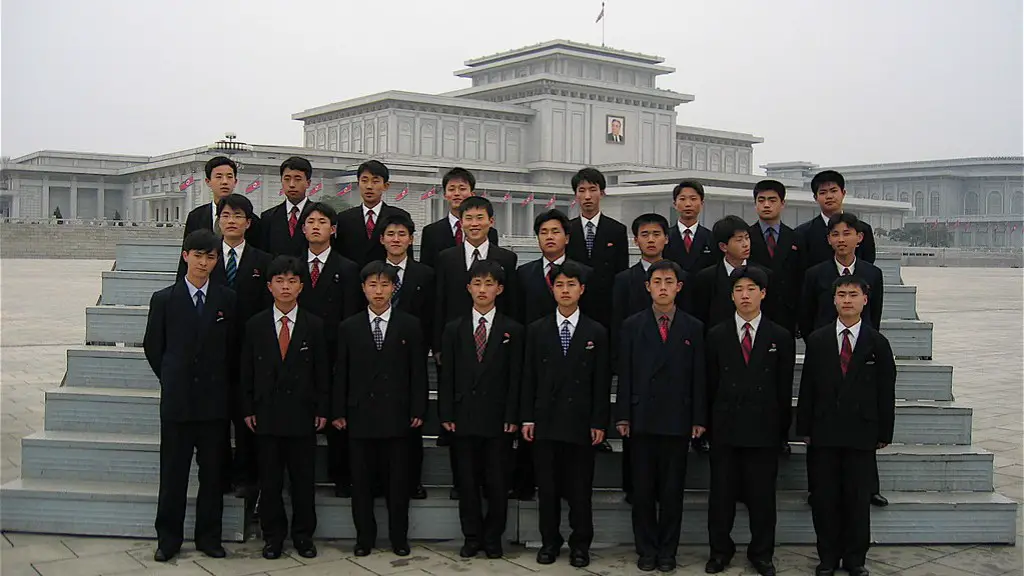The Democratic People’s Republic of Korea, commonly known as North Korea, is one of the most enigmatic and mysterious countries in the world. Despite its isolation, the highly militarized, authoritarian state has become a focal point of international attention for its nuclear weapons programs and its family’s ominous rule. Despite international sanctions, an ambitious economic strategy, and internal political reforms lead by North Korea’s leader, Kim Jong-un, North Korea still seems set in its ways. Therefore, it is only natural to ask the question: will North Korea ever change?
The main driving force behind North Korea’s solidarity is its palpable fear of regime change. Since its founding in 1948 by Kim Il-sung and subsequent succession by his son, Kim Jong-il, North Korea has maintained a near-perfect single-party system. The government has strived to promote the concept of ‘Juche’, or self-reliance, as a means to maintain its rule, while successfully delegitimizing the concept of democracy and capitalism to the population. Economic and political reforms, such as the establishment of special economic zones, have been introduced to attract foreign investment and boost the country’s economy.
But despite the increased attention North Korea has garnered recently, it remains strongly authoritarian and isolated from the international community. The government has consistently denied access to its citizens by blocking the internet, restricting media access, and controlling the flow of information. This has created an atmosphere where citizens are cut off from the rest of the world and insulated from dissenting views or protests. To make matters worse, the government has used coercion and violence to quell dissent, or even perceived threats to Kim Jong-un.
Despite these efforts, North Korea is gradually opening up to the outside world. Over the past decade, the country has seen an increase in economic ties with other states. This includes the establishment of factories in China, as well as trade agreements with Russia, Colombia and the United Arab Emirates. The government has also eased the flow of goods in and out of the country, while allowing citizens more access to foreign goods and services. Additionally, the government has abolished some of its more draconian restrictions, such as not allowing citizens to leave their hometowns without permission.
The government has also implemented other reforms over the years. Although some of these changes have been seen as cosmetic or limited in scope, it has still been a substantial shift from North Korea’s previous staunch stance. Kim Jong-un’s desire to moderate and engage in dialogue with Western states has led to the re-opening of embassies and diplomatic missions in the US, South Korea and other countries. Additionally, the country has held several summits over the past two years with South Korea, the US, and China to discuss denuclearization and the normalization of diplomatic relations.
Ultimately, it remains to be seen whether or not North Korea will continue its reform efforts. Many experts remain skeptical, citing the fact that Kim Jong-un is facing serious economic challenges, coupled with the country’s long history of isolationism. TIME Magazine even named him their 2017 “Person of the Year” due to continued North Korean defiance of the international community. This indicates that there is no clear answer as to whether or not North Korea will continue to reform.
The Political Landscape
Another factor to consider when looking at North Korea’s prospects for reform is its political landscape. The country remains a dictatorship, with Kim Jong-un at the helm. Under his rule, the government has made some progress in allowing citizens more access to outside news and media, as well as introducing economic reforms. However, the country remains a one-party state and there has been little political liberalization since his rule began. The state’s supreme leader is still afforded wide powers, including the right to appoint and remove officials as well as to govern more or less as he pleases.
This all speaks to the difficulty in predicting North Korea’s future. As an autocratic, isolationist state, North Korea relies on its citizens’ loyalty and obedience to its leader. After years of propaganda and control, it is unclear whether the government can bring about meaningful change without risking the stability of the state. Furthermore, Kim Jong-un’s actions have clearly demonstrated his goal of maintaining the status quo, suggesting that extensive reforms may not be on the horizon.
Economic Struggles
Despite the reforms that North Korea has undertaken, the country’s economy still faces a myriad of challenges. The prolonged international sanctions that have been imposed due to the country’s nuclear weapons programs have only exacerbated the country’s economic woes. In 2018, North Korea’s GDP fell to its lowest levels in the past two decades. The pervasive sense of economic marginalization has caused citizens to turn to the black market for goods and services.
Furthermore, state-owned enterprises, which form the foundation of North Korea’s economy, are facing a slowdown due to a prolonged period of underinvestment and underutilization. Even the introduction of industrial parks and special economic zones, which were touted as a way to spur economic growth and attract foreign capital, has not been able to overcome the economic stagnation in the country.
The People’s Voice
Ultimately, the question of whether or not North Korea will ever change comes down to the will of its people. Despite the government’s efforts to stifle dissent and control information, citizens have still found ways to voice their dissatisfaction with the current state of affairs. Protests, while rare and often quashed, speak to the growing dissent in the population. Additionally, the proliferation of independent media outlets and citizen journalism present both a challenge and an opportunity for the North Korean government.
Furthermore, younger North Koreans have grown increasingly wary of the single-party system and its failure to deliver on its promises. Despite the extensive indoctrination campaigns propagated by the government, many young people have chosen to reject the propaganda and seek alternative sources of information. This indicates growing dissatisfaction with the current state of affairs and may signal a potential shift in attitudes towards political and social reforms.
International Relationships
Another factor to consider when looking at North Korea’s prospects for reform is its international relationships. Since Kim Jong-un’s rise to power, the country has made strides in improving its relationship with other countries, particularly in the East Asian region. This includes multiple diplomatic missions and the reopening of the Kaesong Industrial Zone, which used to be a major source of income for both North and South Korea.
However, North Korea is still seen as a pariah state, largely due to its nuclear weapons programs. Furthermore, it still faces heavy sanctions from the US and other Western countries, many of which were recently re-imposed following multiple missile tests in 2017. Despite efforts to improve its standing in the international community, North Korea remains at odds with its regional rivals, particularly South Korea and Japan.
The Verdict
Ultimately, North Korea’s future remains uncertain. Despite the reforms and economic openings that have taken place in the past few years, the country is still entrenched in authoritarianism and isolationism. Kim Jong-un’s apparent goal in engaging in dialogue with Western states is still seen as a stalling tactic, and there is still no clear path to lasting change. However, the fact that North Koreans have found ways to voice their dissatisfaction and have gradually opened up to the outside world speaks to the potential for reform.
Only time will tell whether or not North Korea will make the transition to a more open and liberal society. The country’s relationship with the West, as well as its internal political landscape, will be the determining factors in North Korea’s ability to open up and enter the international community. In the meantime, it is important for the international community to remain engaged and encourage the North Korean government to continue on the path of reform.




